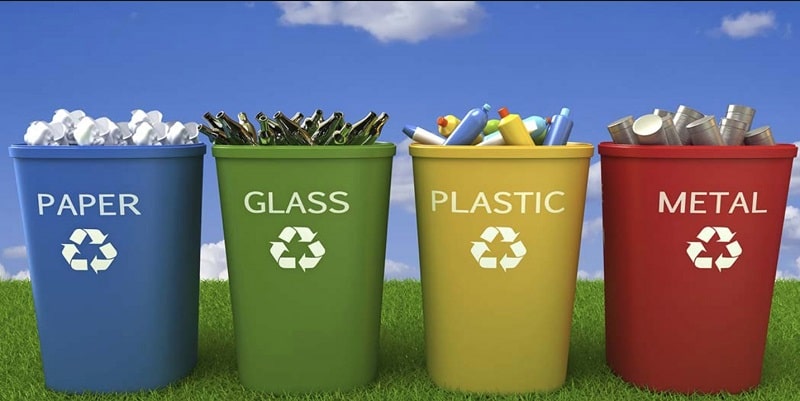Waste management is all the activities and processes needed to manage waste, right from it’s production to disposal. This involves the collection of waste, it’s treatment, transportation, and disposal. Waste management is all about how waste materials can be converted into useful resources, whether at home or place of work.
Specific regulations and monitoring have to be put in place to ensure it is safe for human beings and the environment. It also includes the regulatory and legal framework associated with waste management and recycling.

Types of Waste Management
In this article, we look at some of the main waste management procedures. Read on to learn more.
1. Landfills
This type of waste disposal method mainly involves the burying of waste products in the land. It is the most common garbage disposal method used today, especially in developed countries. Before waste/garbage is placed in landfills, it undergoes a process to remove odor and any dangers of the waste to the ground.
This method is becoming less common today due to the lack of space and the presence of landfill gases like methane, which lead to water and air pollution.
2. Incineration
Commonly referred to as combustion, incineration is a waste disposal method where solid wastes get burned at a very high temperature to produce heat, steam, gaseous products, and residue. It is one of the best procedures in countries that no longer have spaces for landfills.
Incineration can reduce waste to about 30% of the original, thus reducing the space it takes and significantly reducing the stress on landfills.
3. Waste to Energy
Recover energy process involves converting non-recyclable waste into useful fuel, heat, or electricity through different procedures. The type of energy produced is renewable since the waste products can be used again to produce energy.
Waste to Energy (WtE) process has also been seen to reduce carbon emissions by filling the gap of having to burn fossil sources for energy.
4. Recycling and recovery
Recycling is the process of creating new products from waste products without using raw materials and energy. Recycling dramatically reduces energy usage, greenhouse gas emissions, the volume of landfills, and water and air pollution.
Resource recovery, on the other hand, involves taking waste items that are useful and reserving them for the next use. The items are processed to give useful materials or converted to energy in the form of electricity, fuel, or usable heat.
5. Composting
Composting happens to be one of the most natural and most effortless biodegradation processes that involves taking of organic wastes like kitchen waste, and plant remains, and turning them into nutrients- rich food for plants in the garden.
The organic materials usually sit in one single place for several months until microbes start to decompose the waste. This process takes up a lot of space and is slow, but it is one of the best as it can turn unsafe waste into safe products. It is commonly used in organic farming.
6. Plasma glassification
This form of waste management involves the conversion of liquid or solid waste into syngas through a vessel that uses plasma torches and at a temperature of about 10, 000° F to create a glassification zone.
Plasma is an electrically charged gas. During this process, waste is broken down by the intense heat to produce renewable energy and a bunch of other benefits.
7. Waste minimization
This is the easiest method of waste management as it involves reducing the amount of waste materials produced, which in turn reduces the amount of waste being buried in the landfills. Waste reduction/ avoidance can be done through several ideas like recycling, repairing broken items rather than getting new ones, reusing some house items, and avoiding products that are disposable like plastics and plastic bags.
Conclusion
Not all wastes can easily be disposed of, as mentioned above. Some waste products like Biomedical waste are hazardous and may require special handling to prevent contamination. Some specialized waste disposal systems can be used to dispose of such waste.
From this piece, we see that you may need to know critical things about waste management and disposal techniques to keep you and your environment safe. The choice of how you will dispose of your waste lies in your hands; however, you should compare the available options before settling on one.




